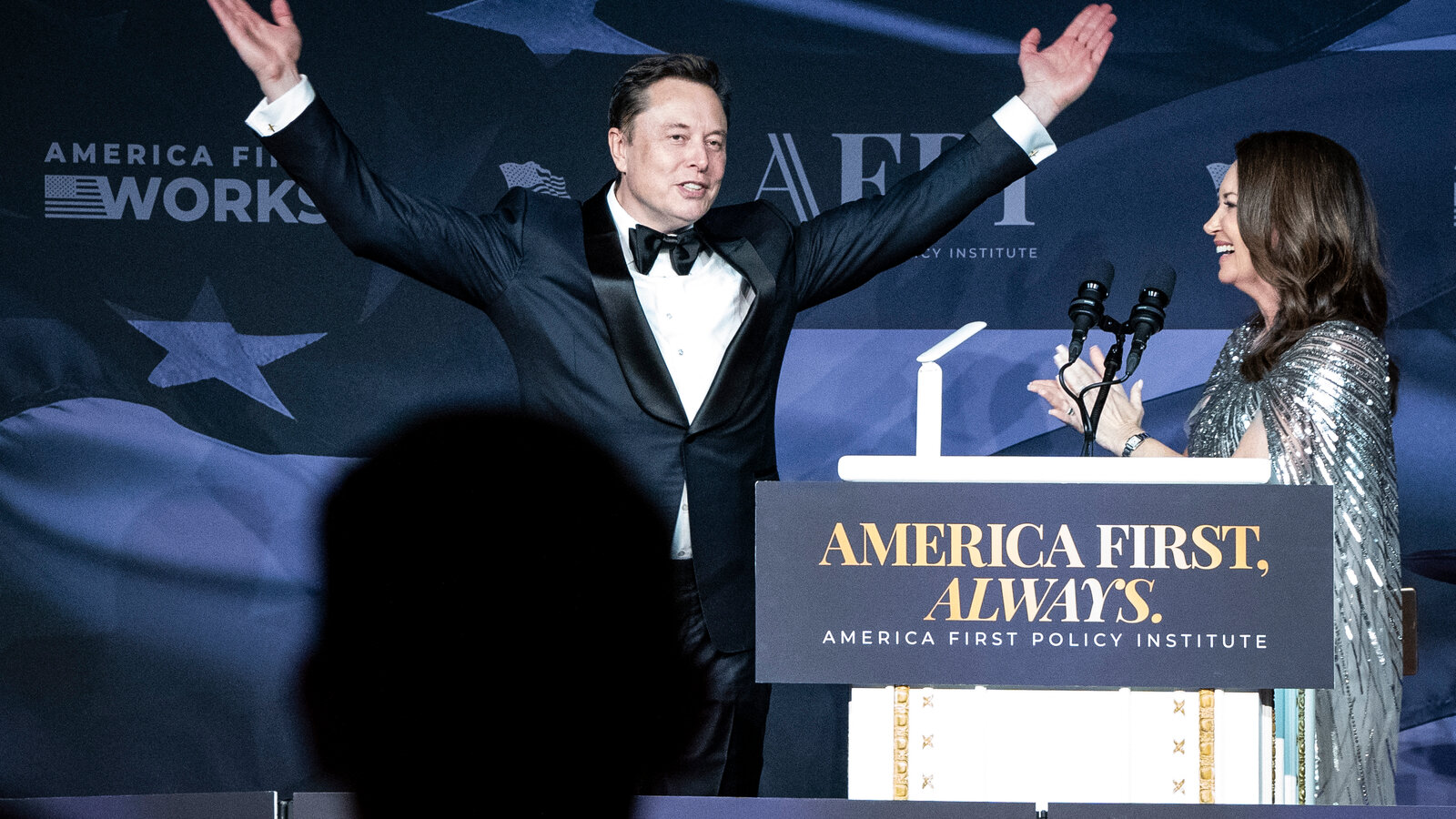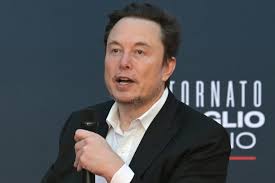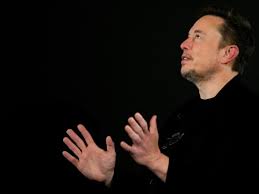Critics slam Musk for minimal donations despite his riches

🎬 Critics Slam Musk for Minimal Donations Despite His Riches
Introduction: The Philanthropy Debate
Elon Musk, one of the wealthiest individuals in the world, has long been in the spotlight for his groundbreaking ventures in technology and space exploration. With a net worth consistently hovering around hundreds of billions of dollars, Musk is often hailed as a visionary who has reshaped industries ranging from electric vehicles with Tesla to private space travel with SpaceX. However, despite his immense wealth and global influence, Musk has recently come under fire for his relatively minimal charitable donations compared to other billionaires. Critics have pointed to the disparity between Musk’s massive fortune and his philanthropic efforts, calling into question his commitment to giving back to society. In this article, we explore the criticisms surrounding Musk’s approach to philanthropy, the potential motivations behind his modest donations, and the broader conversation about billionaire giving in the modern age.
The Scale of Musk’s Wealth vs. His Philanthropic Efforts
As of 2024, Elon Musk’s net worth is estimated to be well over $200 billion, making him one of the richest people on the planet. His success with Tesla, SpaceX, Neuralink, and his other ventures has solidified his status as a leading figure in the tech world. Yet, when it comes to charitable contributions, Musk’s track record seems far less impressive compared to other billionaires, such as Bill Gates, Warren Buffet, and Mark Zuckerberg, who have donated tens of billions of dollars to various causes.
While Musk has made donations to a range of causes in the past, including contributions to educational initiatives and disaster relief, the total amount of his charitable giving remains relatively modest in relation to his wealth. For instance, Musk’s pledge to donate $100 million to combat climate change was considered a generous offer, but it pales in comparison to the billions pledged by other tech moguls to similar causes. Musk’s critics argue that, given his vast fortune, he should be contributing significantly more to address global issues such as poverty, healthcare, and climate change.
Furthermore, Musk has often made headlines for his outspoken nature and bold public statements, but his charitable donations have failed to match the public profile he has cultivated. Critics argue that his wealth should be seen not only as a reflection of his business acumen but also as an opportunity to make a substantial positive impact on the world. The minimal amount of donations Musk has made, especially when compared to his vast fortune, has led to questions about his priorities and values when it comes to philanthropy.
Musk’s Approach to Giving: A Different Philosophy
Elon Musk has defended his approach to philanthropy, arguing that his wealth is best used to drive technological innovation and solve complex global problems, rather than through traditional charitable donations. Musk often emphasizes the idea that his work, particularly with Tesla and SpaceX, is already contributing to society in significant ways. For example, Tesla’s mission to accelerate the world’s transition to sustainable energy and SpaceX’s goal of making life multiplanetary are both aimed at addressing long-term global challenges. According to Musk, his contributions to these industries are a form of philanthropy in their own right, as they could ultimately lead to groundbreaking advancements in environmental sustainability and human progress.
Musk has also expressed skepticism about traditional charitable giving, which he views as inefficient or misguided in some cases. In 2021, he famously announced that he would donate $6 billion to address global hunger if the United Nations World Food Programme could provide a detailed plan on how the funds would be spent. While this offer was widely discussed in the media, it was not followed through, and Musk’s stance on giving in this manner remains unchanged. He has often pointed out that many charitable organizations can be prone to inefficiencies and that, in his view, the best way to help humanity is through technological innovation rather than by simply writing checks.
Despite his unconventional approach, Musk’s critics argue that he is missing an opportunity to make an immediate, tangible difference in people’s lives. While innovations like electric vehicles and space exploration may eventually have far-reaching positive effects, they do not directly address the urgent needs of millions of people struggling with poverty, education, and healthcare today. Critics contend that Musk’s vast wealth places him in a unique position to make a significant, immediate impact through philanthropy, yet his hesitancy to donate on a larger scale suggests a reluctance to embrace the social responsibility that comes with his wealth.
The Billionaire Giving Debate: Is Musk Alone?
Musk is not alone in facing scrutiny over his philanthropic efforts. Other tech billionaires, such as Jeff Bezos and Mark Zuckerberg, have also been criticized for not doing enough in terms of charitable donations relative to their fortunes. This has sparked an ongoing debate about the role of billionaires in addressing social issues and whether their wealth should be seen as a source of private innovation or a public responsibility.
At the same time, some supporters of Musk and other billionaires argue that the focus on charitable donations may be misguided. They point out that large donations to charities are not the only way to make a difference in the world. Through investments in technology, infrastructure, and innovation, billionaires can create lasting solutions that address the root causes of social issues, rather than just alleviating symptoms. For example, Musk’s work with Tesla has significantly advanced the adoption of electric vehicles, reducing carbon emissions and contributing to the fight against climate change.
Moreover, Musk and others like him have pointed to their involvement in creating jobs, driving economic growth, and advancing scientific research as forms of philanthropy that have a broad, long-term impact. In this sense, their wealth is seen as a tool for creating systemic change, not just a resource to be redistributed through charity. Musk himself has expressed a belief that his work with Tesla, SpaceX, and other ventures is a form of long-term social good that may ultimately have a more profound impact than traditional charitable efforts.
Conclusion: Is Musk’s Minimal Giving a Missed Opportunity?
The debate over Elon Musk’s charitable donations is part of a larger conversation about the role of billionaires in modern society. While Musk’s wealth has allowed him to drive technological advancements and push the boundaries of space exploration, his relatively minimal donations compared to his fortune have led many to question whether he could do more. Critics argue that, with his vast resources, Musk could make a more immediate and visible impact on the world through philanthropy. On the other hand, Musk’s defenders contend that his focus on innovation and technological progress is a more sustainable form of giving, one that could ultimately solve many of the world’s most pressing problems in the long run.
Ultimately, the question remains: Should billionaires like Elon Musk be expected to give more of their wealth to charity, or is their role in society best served by driving innovation and tackling global challenges through their businesses? As the conversation about billionaire philanthropy continues to evolve, one thing is clear—Musk’s minimal donations are unlikely to silence the growing calls for greater social responsibility from the world’s wealthiest individuals. Whether Musk embraces this challenge or continues to focus on technological advancements remains to be seen, but his approach to giving will undoubtedly continue to be a topic of public debate for years to come.










